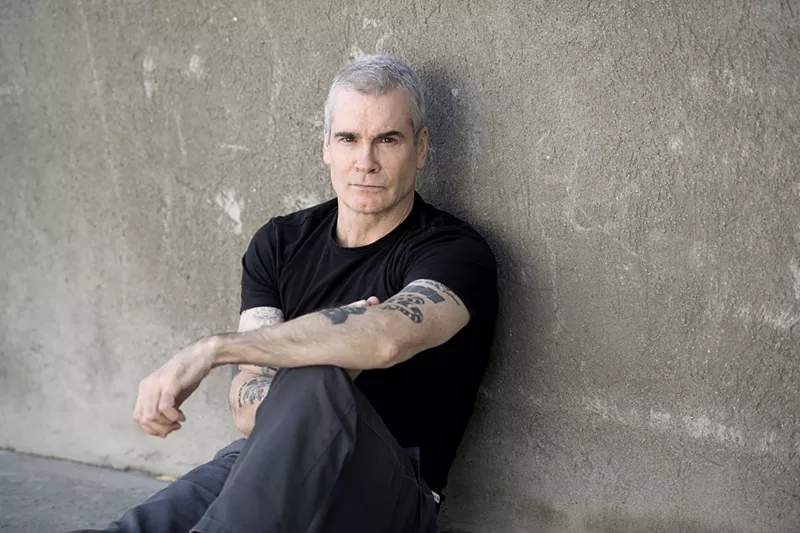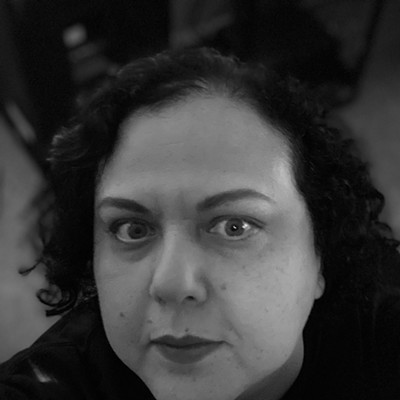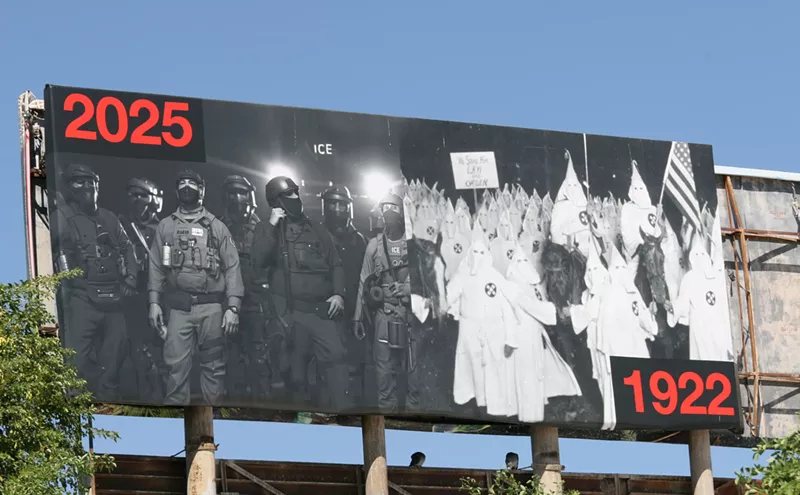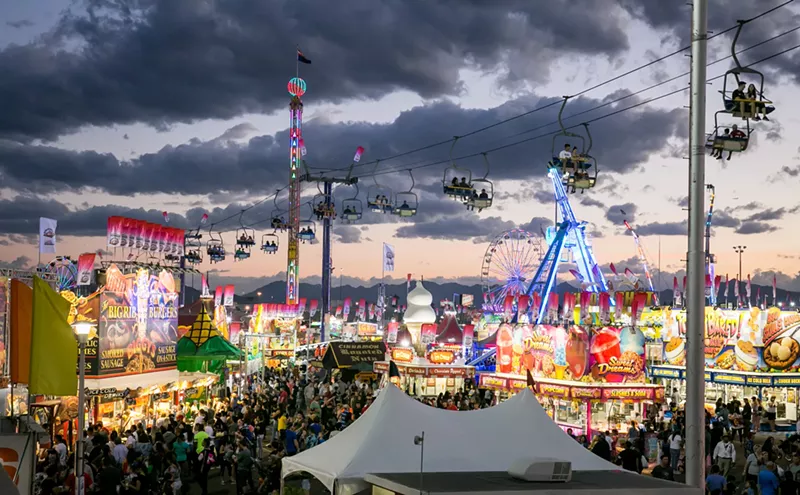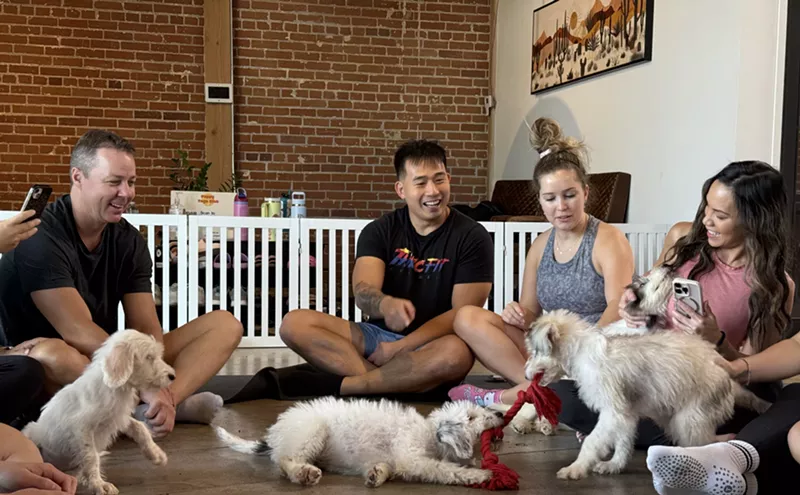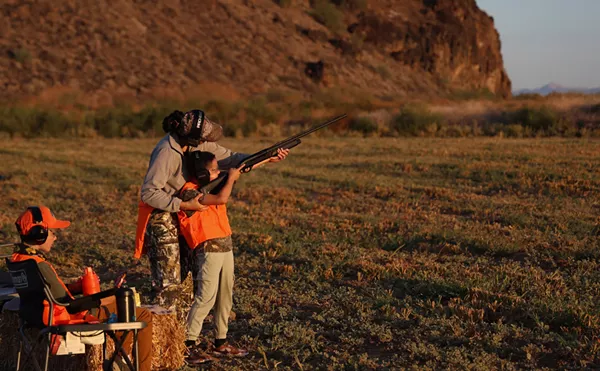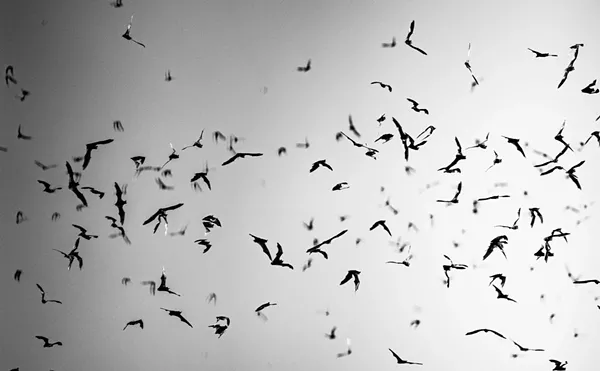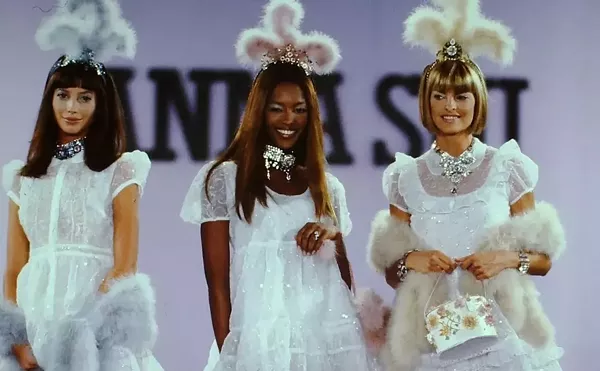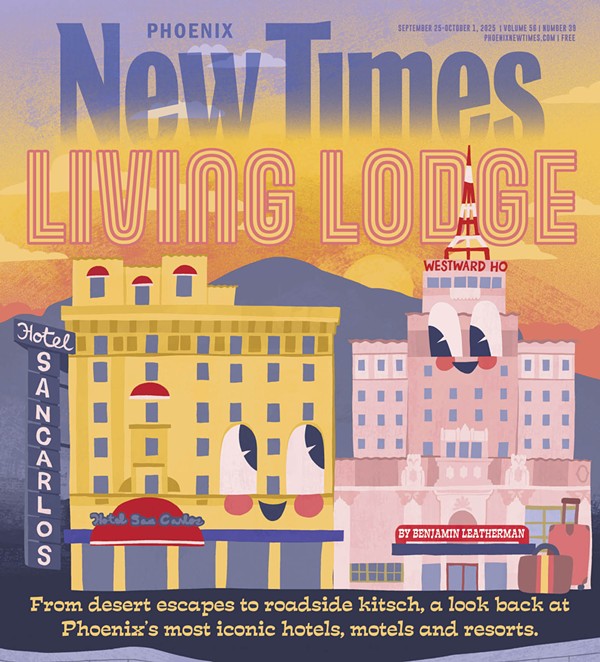This time, part of the focus will be on his life between his last tour and the pandemic and some happenings from the previous few months. No matter what Rollins is speaking about, the force of earnestness behind it makes his tales so compelling. If the Devil is, as they say, in the details, then hail Satan, because this guy doesn’t mince words; he knows how to use them for maximum effect.
Rollins has permeated the cultural landscape since the very early '80s. Jumping into the frontman role in Black Flag in 1981 got everyone tuned into his intensity. During that decade, he also created his publishing label, 2-13-61; wrote books; started speaking to crowds; and made music beyond Black Flag. He's continued to add to his creative repertoire with acting and podcasting. He didn’t just practice DIY; he is DIY. In life’s game of show and tell, he’s done both consistently, making him an inspiration to a worldwide following. Having a global fan and friend base equally motivates and informs his journey.
Before his upcoming show, we had a chat with Rollins to talk about a few things, including how he develops his shows, sharing himself with fans, and the future of the U.S. Oh, stay till the end for a fun Rollins bonus.
Phoenix New Times: Can you explain your process for building a touring spoken word show?
Henry Rollins: For many years, I’d go out into the world between tours and go to places in hopes of something interesting happening that would make for good stories. These gathering missions would take me all over the African continent, Southeast Asia, Central Asia and the Middle East to hopefully see and experience things and people that would open me up and make me see things differently. I did this again and again until COVID stopped me.
I’d always look for the epic middle story for the show, so I’d go on an epic journey — places like Iran, North Korea and Antarctica. Without being able to travel, I had to look in other places for something to tell the audience for this tour. I don’t want to get up there and op-ed, if you will. I think everyone has their own opinion, so I try to avoid that. I try to have too much material in case things don’t work out as well as I’d hoped. You can plan and plan, but even with that, things can not work out as well as you’d hoped, so it’s always good to have too much material.
When you’re having an interesting or exceptional experience, do you ever think, in that moment, that you’ll want to share it with an audience later?
I want the story to be more than reportage. There’s a human melody in these moments, a throughline that anyone can relate to. It’s there, so I have to find it. This is often what takes time. The information is raw intelligence. I need to take it and see what it means. Otherwise, I’m just repeating what happened, and that’s not what I want to do. I think that has the potential to separate me from the audience.
I don’t know if there’s a lesson in any of it, but perhaps a shrinking of the distance from the story of someone halfway across the planet and the person listening. This idea was inspired by the amazing people I’ve encountered traveling to about 90 countries.
Audience members have their respective takeaways and highlights from your shows. What satisfies you the most when you leave a stage? Do you start with any expectations? Are there desired results that drive the show?
My attempt is to be as clear and concise as possible. To be as understandable as I can. This isn’t an exercise in dumbing down the material, as I’m not a professor, and the audience is quite capable of understanding. It’s up to me to not blur the information.
An inspiration for this aim is Lincoln. His speeches are amazing. His grip on the English language is incredible. That’s what I aspire to. Obviously, some nights are better than others, and there are a lot of reasons a show might not go as well as I’d hoped. Sometimes, it’s just down to people in the audience getting up and sitting down all through the night, providing an almost unending distraction. People vaping in front of me, etc., I do the best I can. I don’t want to ever go out to a stage without being, at the very least, fully prepared. I’m not at all interested in leaving things "up to the night" and seeing how I do.
Your shows are often attended by longtime fans, people whose lives you’ve influenced with your music, books and the work of other artists that you share. But who do you go to for inspiration?
I’ve had one best friend for over 50 years. Ian MacKaye. From then to now, he’s been an inspiration to me. He does the right thing. He’s a good guy, and I aspire to that. I get a lot of inspiration from the people I was in Black Flag with. From them, I learned the meaning of hard work beyond hard work. What I learned from them I use every day.
You’ve always been frank about how uncomfortable it can be to have people approach you in public. Your fans know your feelings, but still, many want that one-on-one experience with you. They want that connection, and you give it to them. So, what part of that, if any, gives you satisfaction? You’ve always done it, whether it’s writing people back or chatting in person. Is it simply because you know how meaningful it is to them?
For me, it is of the utmost importance to do my level best to not let down or in any way dampen the enthusiasm or curiosity of anyone, especially a young person. On a wider level, there’s a chance I, or something I’ve done or been a part of, like a record, might have impacted someone. I think there’s some responsibility to be had.
If someone wants to tell me about that, I think listening and acknowledging is the right thing to do. If someone throws a stone into the water, they want to see the rings as proof of impact. If someone wants to tell you something you’ve done has meant something to them, I think it’s right to let them have that moment. It’s not about my ego needing a hug; it’s about that person’s voice being heard. Being able to thank someone for something they did is a powerful experience.
Also, there’s a lot of good that can be done for someone when they know they spoke and were heard. It’s not as if they need validation from the likes of me, but I think listening and acknowledging is better than ignoring or trying to turn their volume down. Ultimately, it’s respect. The people who read my books — they’re the ones I write them for. That’s what it’s all about.
You’ve done a fair amount of acting, including taking the lead role in the horror comedy "He Never Died." Do you think you'll act again?
I don’t. I did a lot of acting when I wasn’t on the road. For me, it’s always been something I did because I couldn’t be touring. I’ve never considered myself an actor. I’m sure casting agents all over Hollywood don’t consider me to be one, either. I stopped acting years ago. With the time I have left, I’d much rather tell my own stories and write my own material. I’m not all that interested in collaboration. I’d rather work alone on projects and surface for final edits with my manager.
I’m wondering what your thoughts are on the upcoming election.
I can’t make predictions as to who will be the next president, but I wonder if, from now on, election results, no matter which side wins, will be rejected, disputed or in some way questioned by a large segment of the electorate. That might be the most damaging effect of Trump’s time in office. I think it will take at least a few generations and a lot of energized candidates running for office, ready to do the heavy lifting of governance, to start rebuilding trust with the American people. I hope it’s not too late.
I think the U.S. government is currently burdened with unserious employees. People like Jim Jordan are not to be taken seriously besides their capacity to waste time and resources. There are a lot of elected officials who, in my opinion, either don’t understand or don’t care about the incredible power they hold and how many lives they affect. Again, they’re unserious.
More broadly, I see this in a lot of places. All these separatist moment members — not serious. The Capitol invaders were not insurrectionists. They had not the bravery nor conviction to be considered as such. When you go into the Capitol armed with bear spray and flagpoles, you know you’re not going to get anything substantial done. They knew if they went in with weapons, they might have to use them. This is why they didn’t bring any. The insurrection, which it wasn’t, was a display of white privilege, pathetically poor planning, misdirected testosterone, mouth-breather cosplay and, again, a profound lack of seriousness. I think the IQ of the electorate is still recovering from Reagan. Maybe by the beginning of the next century, things will start to clear.
More broadly, I see this in a lot of places. All these separatist moment members — not serious. The Capitol invaders were not insurrectionists. They had not the bravery nor conviction to be considered as such. When you go into the Capitol armed with bear spray and flagpoles, you know you’re not going to get anything substantial done. They knew if they went in with weapons, they might have to use them. This is why they didn’t bring any. The insurrection, which it wasn’t, was a display of white privilege, pathetically poor planning, misdirected testosterone, mouth-breather cosplay and, again, a profound lack of seriousness. I think the IQ of the electorate is still recovering from Reagan. Maybe by the beginning of the next century, things will start to clear.
What do you have planned once this tour comes to an end?
I always have something happening. Next year will be a lot of book editing and other projects. I won’t be able to tour, which is a drag, but I’ll be busy nonetheless.
Bonus: Ask, and you shall receive!
Henry Rollins gives us a list – a musical rundown of what’s currently rocking his world.
You are a known music fanatic. Would you like to share what you’re digging lately?
Sure. Some records from the last several months I think are worth checking out:
Tamar Aphek, "All Bets Are Off"; The Bobby Lees, "Bellevue"; Upchuck, "Bite the Hand That Feeds"; Marnie Stern, "The Comeback Kid"; The Osees, "Intercepted Message"; "Hammered Hulls, "Careening"; Automatic, Excess; Lorelle Meets The Obsolete, Datura; YL Hooi, untitled; Snooper, "Super Snooper"; Pere Ubu, "Trouble on Big Beat Street"; Sweeping Promises, "Good Living Is Coming for You"; Melenas, "Ahora"; Teri Gender Bender, "Outsiders"; Optic Sink, "Glass Blocks"; RMFC, "Spectrum / Club Hits"; Taleen Kali, "Flower of Life"; XYZ, "5 Stars EP"; Terry, "Call Me Terry"; Cherry Cheeks, "Second LP"; Second Cable Ties, "All Her Plans."
Henry Rollins gives us a list – a musical rundown of what’s currently rocking his world.
You are a known music fanatic. Would you like to share what you’re digging lately?
Sure. Some records from the last several months I think are worth checking out:
Tamar Aphek, "All Bets Are Off"; The Bobby Lees, "Bellevue"; Upchuck, "Bite the Hand That Feeds"; Marnie Stern, "The Comeback Kid"; The Osees, "Intercepted Message"; "Hammered Hulls, "Careening"; Automatic, Excess; Lorelle Meets The Obsolete, Datura; YL Hooi, untitled; Snooper, "Super Snooper"; Pere Ubu, "Trouble on Big Beat Street"; Sweeping Promises, "Good Living Is Coming for You"; Melenas, "Ahora"; Teri Gender Bender, "Outsiders"; Optic Sink, "Glass Blocks"; RMFC, "Spectrum / Club Hits"; Taleen Kali, "Flower of Life"; XYZ, "5 Stars EP"; Terry, "Call Me Terry"; Cherry Cheeks, "Second LP"; Second Cable Ties, "All Her Plans."
Henry Rollins. 7:30 p.m. Thursday, Nov. 9, at Mesa Arts Center's Piper Repertory Theater, 1 E. Main St., Mesa. Tickets are $39.50 to $49.50 and are available here.

